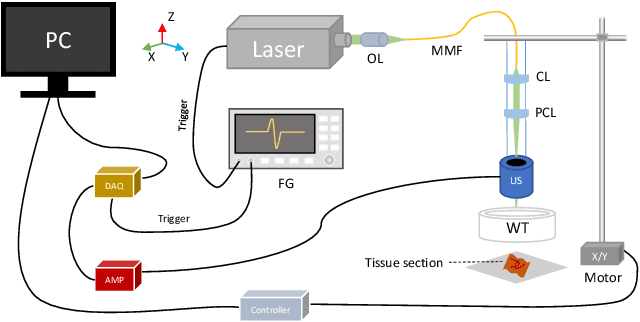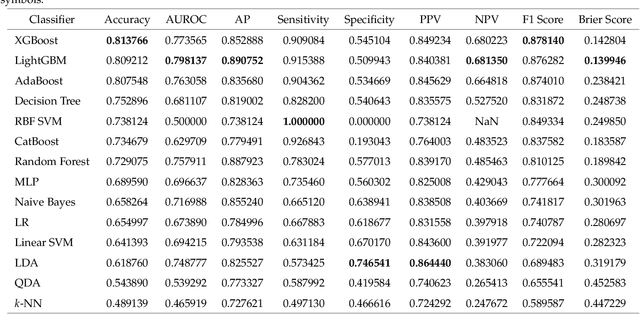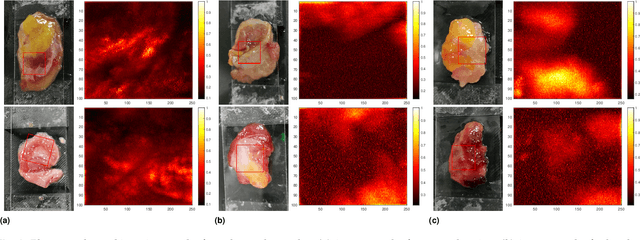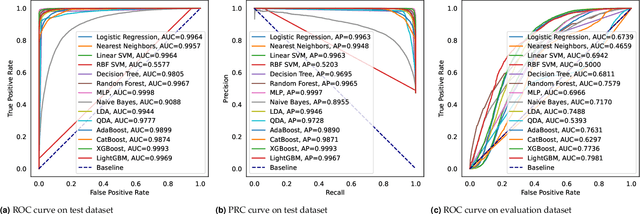Peng Ge
School of Information Science and Technology, ShanghaiTech University
Gradient-based adaptive wavelet de-noising method for photoacoustic imaging in vivo
Jul 25, 2023Abstract:Photoacoustic imaging (PAI) has been applied to many biomedical applications over the past decades. However, the received PA signal usually suffers from poor signal-to-noise ratio (SNR). Conventional solution of employing higher-power laser, or doing long-time signal averaging, may raise the system cost, time consumption, and tissue damage. Another strategy is de-noising algorithm design. In this paper, we propose a new de-noising method, termed gradient-based adaptive wavelet de-noising, which sets the energy gradient mutation point of low-frequency wavelet components as the threshold. We conducted simulation, ex vivo and in vivo experiments to validate the performance of the algorithm. The quality of de-noised PA image/signal by our proposed algorithm has improved by 20%-40%, in comparison to the traditional signal denoising algorithms, which produces better contrast and clearer details. The proposed de-noising method provides potential to improve the SNR of PA signal under single-shot low-power laser illumination for biomedical applications in vivo.
Machine-Learning-based Colorectal Tissue Classification via Acoustic Resolution Photoacoustic Microscopy
Jul 17, 2023



Abstract:Colorectal cancer is a deadly disease that has become increasingly prevalent in recent years. Early detection is crucial for saving lives, but traditional diagnostic methods such as colonoscopy and biopsy have limitations. Colonoscopy cannot provide detailed information within the tissues affected by cancer, while biopsy involves tissue removal, which can be painful and invasive. In order to improve diagnostic efficiency and reduce patient suffering, we studied machine-learningbased approach for colorectal tissue classification that uses acoustic resolution photoacoustic microscopy (ARPAM). With this tool, we were able to classify benign and malignant tissue using multiple machine learning methods. Our results were analyzed both quantitatively and qualitatively to evaluate the effectiveness of our approach.
Adaptive De-noising of Photoacoustic Signal and Image based on Modified Kalman Filter
Nov 18, 2022Abstract:As a burgeoning medical imaging method based on hybrid fusion of light and ultrasound, photoacoustic imaging (PAI) has demonstrated high potential in various biomedical applications recently, especially in revealing the functional and molecular information to improve diagnostic accuracy. However, stemming from weak amplitude and unavoidable random noise, caused by limited laser power and severe attenuation in deep tissue imaging, PA signals are usually of low signal-to-noise ratio (SNR), and reconstructed PA images are of low quality. Despite that conventional Kalman Filter (KF) can remove Gaussian noise in time domain, it lacks adaptability in real-time estimating condition due to its fixed model. Moreover, KF-based de-noising algorithm has not been applied in PAI before. In this paper, we propose an adaptive Modified Kalman Filter (MKF) targeted at PAI de-noising by tuning system noise matrix Q and measurement noise matrix R in the conventional KF model. Additionally, in order to compensate the signal skewing caused by KF, we cascade the backward part of Rauch-Tung-Striebel smoother (BRTS), which also utilizes the newly determined Q. Finally, as a supplement, we add a commonly used differential filter to remove in-band reflection artifacts. Experimental results using phantom and ex vivo colorectal tissue are provided to prove the validity of the algorithm.
 Add to Chrome
Add to Chrome Add to Firefox
Add to Firefox Add to Edge
Add to Edge